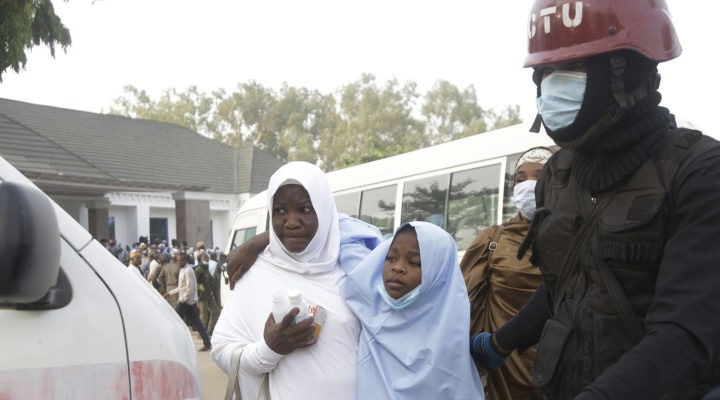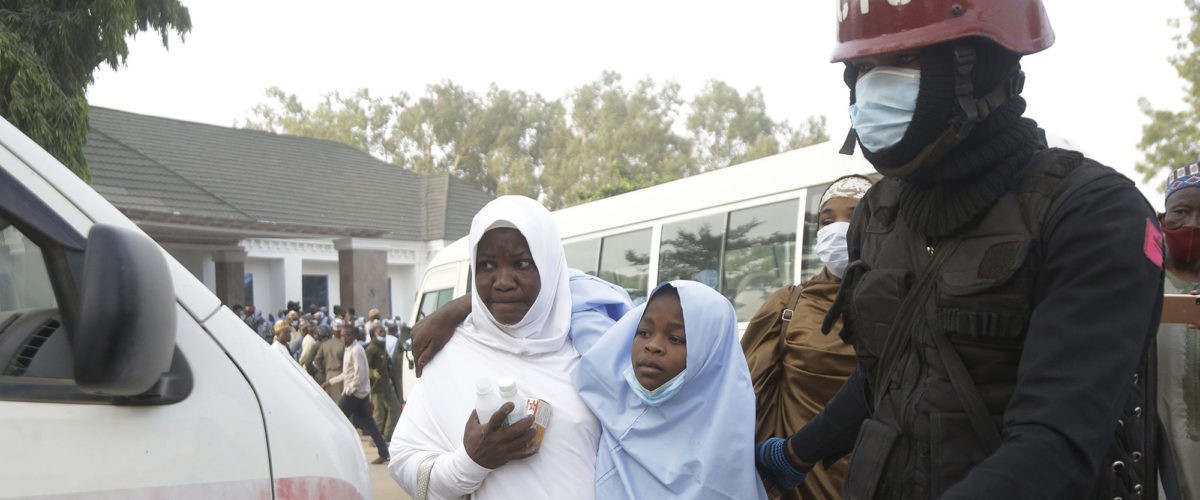Less than three months after being designated a Country of Particular Concern by the U.S. State Department over its religious record, Nigeria has again became the focus of another U.S. agency — the Commission on International Religious Freedom.
A virtual event held on Feb. 16 with the theme “Engaging State and Local Government in Nigeria to Protect Religious Freedom” involved panelists who discussed and shared ideas on how to tackle Nigeria’s seemingly endless religious crisis. The event came just days after USCIRF released a report on Nigeria titled “Violent Islamic Groups in Northern Nigeria” authored by Madeline Velturo.
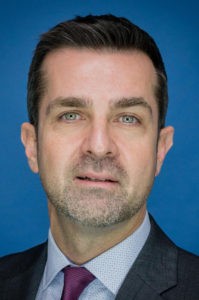
Dwight Bashir
Dwight Bashir, USCIRF’s director of outreach and policy, began the webinar by saying USCIRF is an independent bipartisan federal advisory body created by the International Religious Freedom Act of 1998 to monitor religious freedom abroad and make policy recommendations to the president, Secretary of State and Congress. Further, he noted USCIRF has been reporting on Nigeria for more than 15 years.
Based on its knowledge of Nigeria, Dwight said that the agency has been recommending since 2009 that the State Department designate Nigeria a country of particular concern for engaging in and tolerating systematic, ongoing and egregious violations of international religious freedom. This request was granted in December 2020.
About Boko Haram
Bashir’s remarks were followed by those of Tony Perkins, vice chairman of USCIRF, who was represented by commissioner Frederick A. Davie.
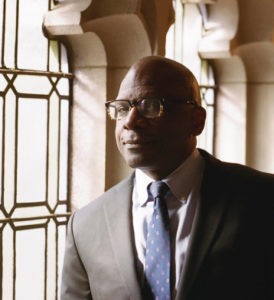
Frederick Davie
Davie said it was “an extremely relevant time to be discussing religious freedom conditions in Nigeria,” and that, in addition to the State Department’s designation of Nigeria as a country of concern, the U.S. Congress on Dec. 15 held a hearing to discuss religious violence in Nigeria’s middle belt.
One of the worst purveyors of religious violence in Nigeria today is Boko Haram, the terrorist group that has, since 2009, waged a war against people of all faiths in the country, leading to the death of thousands and destruction of property and means of livelihoods. The group was in the news again this week for kidnapping hundreds of schoolchildren — a recurring pattern of violence.
“Tragically, as December came to a close, Boko Haram followed through on threats to target Christian communities,” Davie added. In three separate attacks, two on Christmas Eve, and one the day after Christmas, Boko Haram fighters killed a dozen Nigerians and abducted several others, including an evangelist preacher in several villages in the north of the country.
Inadequate government response
He further drew attention to the situation in Kaduna, located in Nigeria’s north central region. “Kaduna has experienced a near tripling of violent incidents in the past year, with roughly 400 persons abducted for ransom and the displacement of 50,000 people. And while the drivers of this violence are many and complex, there can be no doubt that Christian communities have borne the brunt of the violence in a state led by predominantly Muslim leadership,” he claimed.
“Whether El-Rufai is simply incompetent, neglectful or complicit in the violence remains up for debate.”
“The response of Kaduna governor, Nasir el-Rufai, has been woefully inadequate,” Davie said, adding, “Whether el-Rufai is simply incompetent, neglectful or complicit in the violence remains up for debate. But what is not up for debate is that he and his administration could be doing more to hold perpetrators accountable. Inaction in this divided state has led many on both sides to believe the governor favors Muslims over Christians. … These narratives are tearing apart the social fabric of the state and contributing to escalation of inter-faith distrust and violence.”
Davie also spoke about the situation in Kano, a border state with Kaduna, where Yahaya Sharif Aminu, a 22-year-old, and Umar Farooq, a 13-year-old, were arrested and charged for blasphemy for allegedly “insulting the Prophet Muhammad in private interactions.” Also arrested by Kano authorities with the support of the police in Kaduna is Mubarak Bala, a prominent atheist, activist and president of Nigeria’s Humanist Association.
How to better engage
Davie’s views were followed by those of Oge Onubogu, director of West Africa Programs, U.S. Institute of Peace, and Nnamdi Obasi, senior adviser, International Crisis Group. Both speakers are familiar with Nigeria. Both shared thoughts on how USCIRF and the U.S. generally could better engage with Nigerian officials in improving religious freedom in the country.
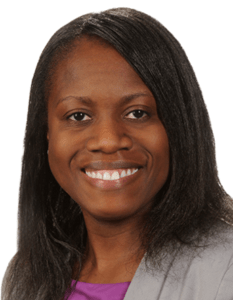
Oge Onubogu
Onubogu, in her submission, said Nigeria is a very complex society and is “not a conventional nation-state in the way we think about typical countries.” Such knowledge, she said, is key to understanding when religion is a driver of conflict or becomes a tool to manipulate conflict in the country.
She pointed out, for instance, that “Nigeria is a country with 36 states and 774 local government areas. Each of the 36 states are governed by powerful state governors, some of who oversee populations that are larger than populations in some West African countries and also oversee budgets that are also larger than budgets of some countries in the continent.”
Obasi, for his part, said that although Nigeria’s constitution makes clear that the country is a secular state that guarantees freedom of religion for the citizens, there are obvious contradictions. “Anyone who claims that there are no questions about religious liberty in Nigeria, as a senior Nigerian government official said recently, is either being willfully disillusional or is being downright dishonest. There are many questions and in fact real problems that we need to address.”
He pointed out that while the state governors are powerful in several respects, the instruments for guaranteeing and enforcing rights, including religious rights, are controlled by the federal government.
Curiously, “while governors and local actors can sometimes be very constructive influences in guaranteeing religious freedoms and other human rights, they can sometimes also be the central driving factors in stoking, enabling or abetting violations of religious freedom and other rights. And they do this through a combination of either deliberate policies or by deficits and failures in policies which then create enormous problems.”
A young democracy
Obasi added that part of the challenges Nigeria faces as a country is democracy itself.
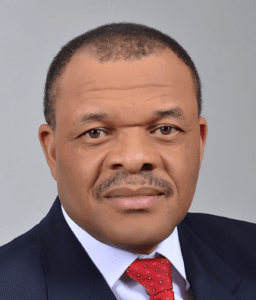
Nnamdi Obasi
“Nigeria is a relatively young democracy and so, democratic values have not percolated down the system. Therefore people and governors still are guided by the culture, values or disposition of dominant groups within their states rather than strictly by the Constitution. So, on the face of it, they talk about the Constitution but in reality they are guided by the culture, values and dispositions of the people around them, especially the dominant groups,” he said.
Additionally, “governments are not doing enough to address the underlying economic, political, environmental causes that trigger and drive violence,” he asserted. And they “are not doing enough at the state level to secure federal government commitment to protect communities.
“We have thousands of people killed, thousands of people displaced, thousands of people maimed, and then the small numbers (of culprits) arrested are not diligently prosecuted and at the end of the day, there’s an air of impunity all over the place.”
Amid all these shortcomings, “Judicial capacity to investigate, prosecute and so on is terribly lacking in a lot of the states,” he said. “I saw somewhere the country has about 2,000 judges and at the moment it has 151,000 cases pending in court, so you can imagine how long it will take to dispense with those cases.”
To help improve religious freedom and harmony in Nigeria, Obasi called for the U.S. and its agencies and officials to engage with stakeholders in Nigeria and voice concern about abuses and discrimination on the basis of religion and ensure that people in the country are treated equally irrespective of their religious backgrounds or beliefs.
Anthony Akaeze is a native Nigerian who is a religion journalist based in Houston.
This article was made possible by gifts to the Mark Wingfield Fund for Interpretive Journalism. Learn more at www.baptistnews.com/donate.

